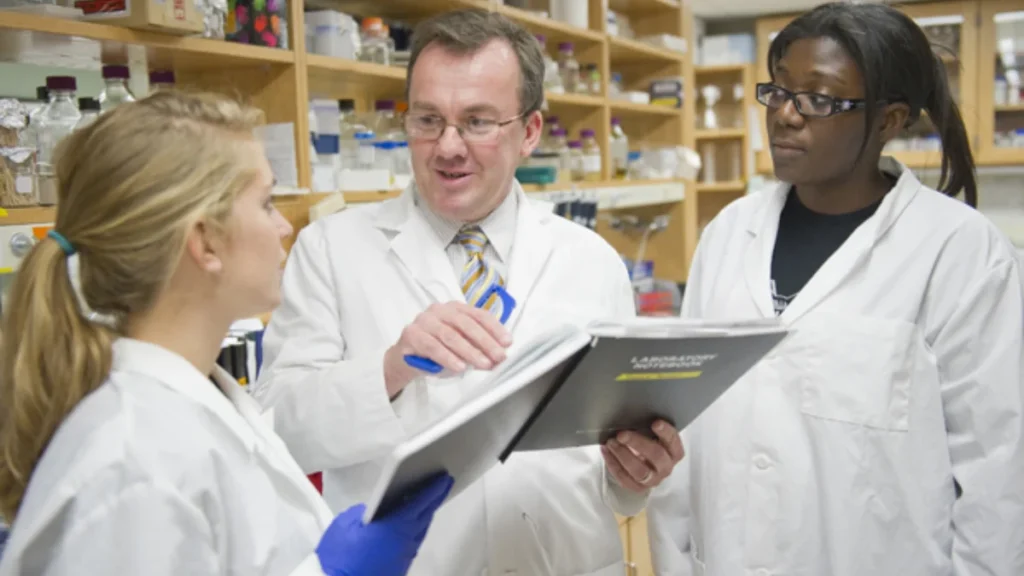Scientific discoveries have shaped the world we live in today, revolutionizing our understanding of the universe and driving progress in various fields. From the invention of the wheel to the discovery of penicillin, these breakthroughs have had a profound impact on human civilization. In this article, we embark on a journey into the realm of science development, uncovering the secrets behind scientific discoveries and exploring their significance.
The importance of scientific discoveries
Scientific discoveries play a pivotal role in advancing knowledge and improving our lives. They provide us with a deeper understanding of the natural world, allowing us to develop new technologies, medicines, and solutions to pressing problems. For instance, the discovery of electricity paved the way for countless innovations, from light bulbs to smartphones. Moreover, scientific discoveries have the power to challenge existing beliefs and paradigms, pushing the boundaries of human understanding.
Famous scientific discoveries throughout history
Throughout history, there have been numerous scientific discoveries that have left an indelible mark on society. One such example is Isaac Newton’s theory of gravity, which revolutionized physics and laid the foundation for our understanding of the laws governing the universe. Albert Einstein’s theory of relativity, on the other hand, redefined our notions of space and time, opening up new avenues for scientific exploration. These breakthroughs, along with many others, have shaped the course of human history and propelled us forward.
The process of scientific discovery
Scientific discovery is a complex and iterative process that involves observation, experimentation, and analysis. It often starts with a question or a problem that scientists seek to answer or solve. They then formulate hypotheses, which are educated guesses based on existing knowledge and observations. These hypotheses are tested through carefully designed experiments, with the results being analyzed and interpreted. The process is not linear but rather a cycle of refining and revising hypotheses based on new evidence. It requires patience, perseverance, and an open mind.
Factors influencing scientific discoveries
Scientific discoveries are influenced by a myriad of factors, including societal, economic, and technological conditions. The availability of funding and resources, for example, can greatly impact the scope and pace of scientific research. Additionally, cultural and political factors can shape the direction of scientific inquiry. For instance, during times of war, scientific research often focuses on developing technologies with military applications. Furthermore, collaborations and exchange of ideas among scientists from different disciplines and countries can lead to groundbreaking discoveries.
Challenges in scientific discovery
While scientific discovery has brought about immense progress, it is not without its challenges. One major obstacle is the inherent uncertainty and complexity of the natural world. Scientists often face unexpected results or contradictory evidence, requiring them to reassess their hypotheses and approaches. Additionally, the pressure to publish and secure funding can sometimes lead to a bias towards positive results, potentially compromising the integrity of scientific research. Moreover, scientific discoveries can also raise ethical dilemmas and spark debates about their implications for society.
Recent scientific discoveries
In recent years, scientists have made remarkable discoveries that have captured the world’s attention. For instance, the detection of gravitational waves confirmed Einstein’s theory of relativity and opened up a new way of observing the universe. The discovery of the CRISPR-Cas9 gene-editing tool has revolutionized the field of genetics and holds great promise for treating genetic diseases. Furthermore, the exploration of exoplanets has given us tantalizing glimpses into the possibility of extraterrestrial life. These discoveries remind us of the endless possibilities that scientific exploration holds.
The future of scientific discovery
As we venture into the future, the possibilities for scientific discovery are boundless. Advances in technology, such as artificial intelligence and quantum computing, are expected to accelerate the pace of scientific research and unlock new frontiers of knowledge. Moreover, interdisciplinary approaches that combine different fields of study are likely to yield unexpected breakthroughs. However, with progress comes responsibility. It is crucial that we consider the ethical implications of our discoveries and ensure that they are used for the benefit of all humanity.
Ethical considerations in scientific discovery
Scientific discovery raises important ethical considerations that must be carefully addressed. The potential for misuse of scientific advancements, such as the development of nuclear weapons or the exploitation of genetic information, poses significant risks. It is essential that ethical guidelines and regulations are in place to guide the responsible conduct of scientific research. Additionally, inclusivity and diversity in scientific inquiry are crucial to ensure that the benefits of scientific discovery are accessible to all and that different perspectives are taken into account.
Conclusion
Scientific discoveries have shaped our world and continue to drive progress in unimaginable ways. From the ancient times to the present day, scientists have pushed the boundaries of knowledge, uncovering the secrets of the universe and improving our lives. As we embark on this journey into the realm of science development, let us appreciate the immense value of scientific discovery and the profound impact it has on our society. Through curiosity, collaboration, and ethical considerations, we can continue to unveil the mysteries of the world and pave the way for a brighter future.
FAQ’s
Q: How do scientific discoveries contribute to society?
Scientific discoveries contribute to society by advancing knowledge, driving technological innovations, and addressing societal challenges. They provide us with a deeper understanding of the natural world and enable us to develop solutions to pressing problems.
Q: What are some recent scientific discoveries?
Recent scientific discoveries include the detection of gravitational waves, the development of the CRISPR-Cas9 gene-editing tool, and the exploration of exoplanets. These breakthroughs have opened up new avenues for scientific exploration and have the potential to revolutionize various fields.
Q: What are the ethical considerations in scientific discovery?
Ethical considerations in scientific discovery include the responsible use of advancements, the prevention of misuse, and the inclusion of diverse perspectives. It is crucial to ensure that scientific discoveries are used for the benefit of all humanity and that potential risks are carefully addressed.

